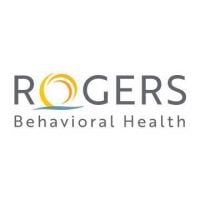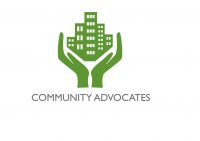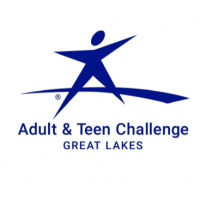Compassionate Care Counseling
Drug Rehab Center in Kenosha, Wisconsin
- Opioid Addiction
- Dual Diagnosis
- Drug Addiction
- Alcoholism
Compassionate Care Counseling offers a comprehensive drug rehab program tailored to meet individual needs, including initial assessment, evidence-based treatments, additional resources, aftercare support services, and a compassionate approach aimed at ensuring every patient has access to the best treatment options available to help them reach long-term sobriety success.
About Compassionate Care Counseling in Wisconsin
Compassionate Care Counseling is an outpatient treatment center located in Kenosha, WI. They specialize in the treatment of alcoholism, dual diagnosis, opioid addiction, and drug addiction. Their team of professionals is dedicated to providing evidence-based care tailored to the individual needs of each patient.
At Compassionate Care Counseling, clients can access a variety of levels of care to support them on their journey to recovery. They offer aftercare support, drug rehab, and outpatient services. Their therapeutic options include couples therapy, family therapy, group therapy, and individual therapy. In addition, they provide patients with the encouragement and guidance they need to overcome addiction and maintain long-term sobriety.
Genders
Ages
Modality
Additional
Conditions and Issues Treated
With so many people addicted to opioids, we need to help those who want to quit. The cycle begins when opioid addicts take opioids for a painful injury. When someone starts taking their medication differently or in excess, it means they’re addicted and at risk of overdosing.
In , detoxing from these types of treatments is the most effective way to beat this. Most facilities begin with medical assistance and then provide counseling services; rehabilitation follows after successful treatment.
Levels of Care Offered
This center offers a variety of custom treatment tailored to individual recovery. Currently available are Aftercare Support, Drug Rehab, Outpatient, with additional therapies available as listed below.
Alcohol or drug addiction, or co-occurring disorders, are treated in an outpatient program. The patient must attend therapy and other programs at the facility but can return home each night.
Outpatient treatment allows recovering addicts to live at home while receiving addiction treatment. Outpatients can attend group sessions for a few hours per week. Outpatients may also continue to work full time and study/attend school without interruption if they choose.
The accomplishment of completing a drug or alcohol treatment program is just the first step. Once that is complete, aftercare support comes into play. This includes helping people adjust to life without substances outside of guidelines with assistance like getting sober living accommodations and career counseling and AA/NA programs for those who are struggling between sobriety or want continued help in maintaining it once they have completed their initial rehabilitation at an addiction facility.
Aftercare comprises services that help recovering addicts readjust to normal day-to-day activities while working on specific issues. These problems include psychiatric issues, family problems caused by substance abuse, continuing education pursuits if desired during rehab, etc. These can last up to one year+ depending on what’s needed most urgently upon completion of earlier stages.
Therapies & Programs
Different people react differently to various treatment options. Some drug rehabilitation centers offer individualized treatment that caters to the specific needs of a drug addict. The best treatment option varies on an individual depending on the type of drug abused, life history, medical condition of the person, social circumstances, and the environment they live in now.
When a person enters drug rehab, they usually have anti-drug associations such as withdrawal symptoms, stress, cravings, etc. The first step of drug rehab is to detoxify the body from any residual substances in it. Drug rehabilitation centers usually employ trained medical professionals to help in this process. Usually, the initial detoxification lasts for five days, where the person is monitored under close supervision.
Couples therapy is a treatment method used to help couples in which at least one member of the couple has a drug addiction. The treatment is designed to help the couple strengthen their relationship to minimize the effects of drug addiction on their lives and promote healthy communication between them.
Couples therapy can be used whether the addicted partner is using drugs or in recovery. It helps the couple create healthy communication and coping skills to minimize the problem-solving abilities of one partner, which can then be directed at solving issues related to their addiction. It also helps couples address problems that may be related to drug addiction. Couples therapy can help couples feel like a team and not feel like their partner is the problem.
Couples therapy is very challenging for both the drug addict and their partner. It requires an intense commitment between the two individuals to participate in the sessions and the homework assigned between sessions.
An additional benefit of couples therapy is that it can help make other types of treatment, such as 12-step programs, more effective.
Family therapy sessions typically involve the addict and their family members. During these sessions, a therapist will work with everyone involved to help them understand addiction and find healthy ways of coping without substance abuse.
Some addicts might feel embarrassed about their substance abuse problems. By encouraging family members to attend these sessions, therapists can show addicts that they’re not alone in dealing with addiction. Therapists can also work with family members to help them understand addiction and learn how to offer support and encouragement to their loved one as they deal with substance abuse issues.
Attending group therapy at Compassionate Care Counseling in , is a useful way for those seeking sobriety to realize they aren’t the only one going through it.
This is when a group of people on different recovery phases get together and talk about what they’re going through, their triggers, successes, and failures. This can include alternative types of therapies too! Group therapy may occur on an outpatient or inpatient basis with groups that have no pre-existing relationships outside the session, unlike support groups where everyone already knows each other beforehand.
Payment Options Accepted
For specific insurance or payment methods please contact us.
Additional Details
Specifics, location, and helpful extra information.
Kenosha, Wisconsin 53140 Phone Number(262) 652-6311 Meta DetailsUpdated November 25, 2023
Staff Verified
Compassionate Care Counseling Patient Reviews
There are no reviews yet. Be the first one to write one.
Kenosha, Wisconsin Addiction Information
Wisconsin has some of the highest rates in the United States for both adolescent and adult substance abuse. Since 2009, the state has been experiencing the same escalating rates of drug abuse and addiction as the rest of the country. The major concerns are the misuse of prescription painkillers and the escalating number of deaths due to alcohol-related liver disease.
8% of Kenosha residents reported using illicit drugs in the past month in 2021. 1 in 10 residents needs treatment for an alcohol or drug problem. Underage drinking is also a problem in the city. In 2021, about 28% of Kenosha high school students reported drinking alcohol in the past month. Treatment centers offer both inpatient and outpatient programs, as well as a variety of specialized programs.
Treatment in Nearby Cities
- Phillips, WI (249.0 mi.)
- Wautoma, WI (125.4 mi.)
- New Holstein, WI (94.0 mi.)
- Mayville, WI (71.4 mi.)
- Superior, WI (353.9 mi.)
Centers near Compassionate Care Counseling




The facility name, logo and brand are the property and registered trademarks of Compassionate Care Counseling, and are being used for identification and informational purposes only. Use of these names, logos and brands shall not imply endorsement. RehabNow.org is not affiliated with or sponsored by Compassionate Care Counseling.



